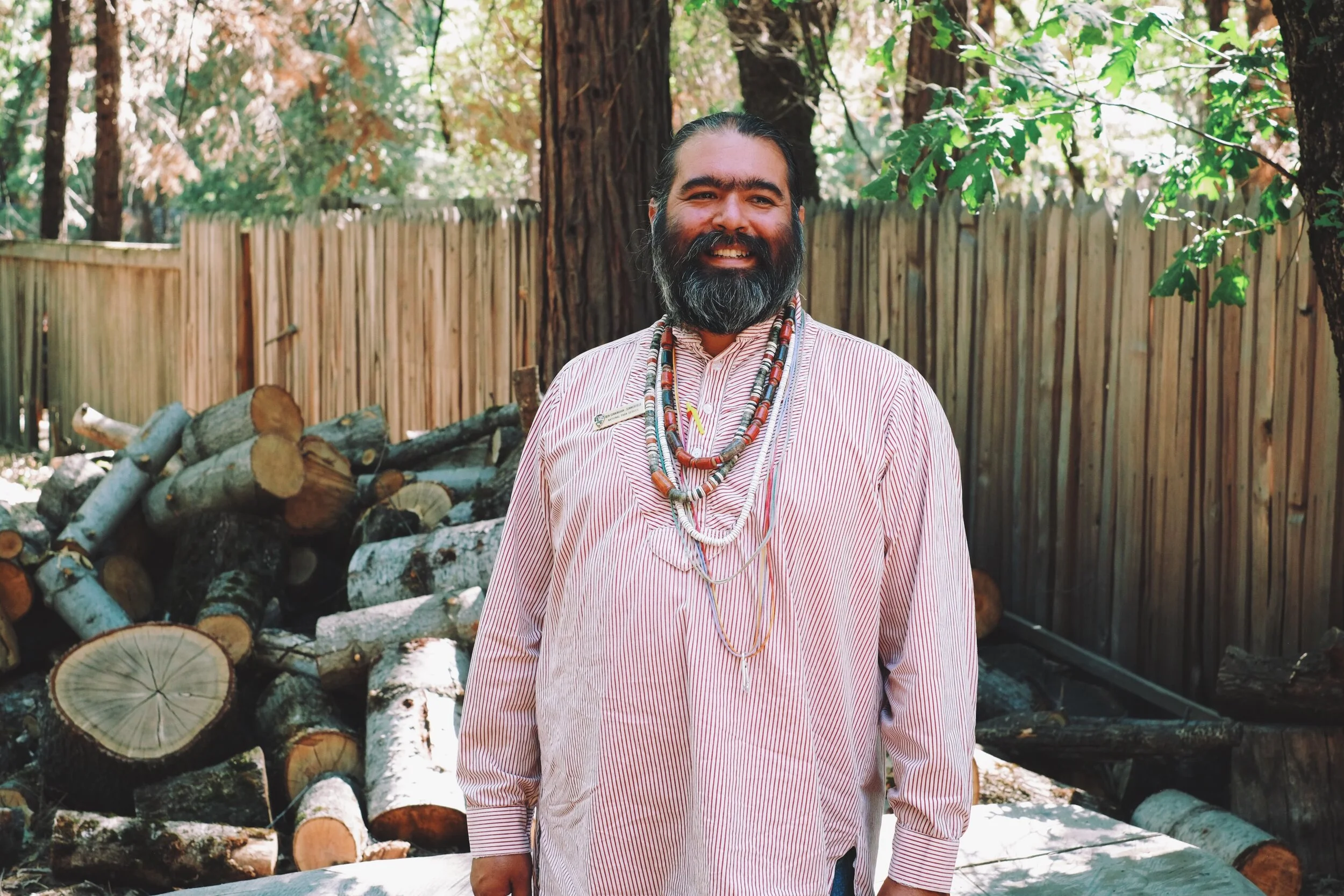Interview Recap: Ben Cunningham-Summerfield, Yosemite Museum
When we first met Ben Cunningham-Summerfield, he was demonstrating an array of traditional instruments, and carving arrowheads in front of a handful of curious visitors—part of his role as a cultural interpreter in the Yosemite Museum. His mother’s father’s tribe is the Turtle Mountain Band of Chippewa from Minnesota, and his father’s tribe is Mountain Maidu from Northern California.
Sitting in the shade in the heart of Yosemite Indian Village, we spoke to Ben about the challenges of being Indian in today’s America. The tribal histories we’ve encountered across the country are always complex. In Yosemite, gold miners who settled in 1849 sought to violently remove all traces of the Miwok & Maidu tribes by 1851. And on top of that, contemporary tribes must navigate a complicated process to receive federal recognition. And public understanding thinks of Indians as being a relic of the past, often asking questions in past tense.
But one thing Ben wanted us to take away from the conversation was that Indian cultures are still present, still vibrant today. We spoke about stories as being the history lessons for him growing up. But we also spoke about limitations of those stories—that some stories are for men, and some for women, and always, the source of our story should be given credit. In that spirit, we send our thanks to Ben for sharing his versions of “Coyote & Bear” and “Grasshopper & Ant.”
In our conversation, we learned Ben loves speaking to visitors from all over the world and teaching visitors of Indian culture - past and present. Ben is happy to answer any and all questions that come his way, because “you never know who you’re going to touch, and how you’re going to touch them.” It’s just one reason that makes Ben such a great interpretive ranger.

